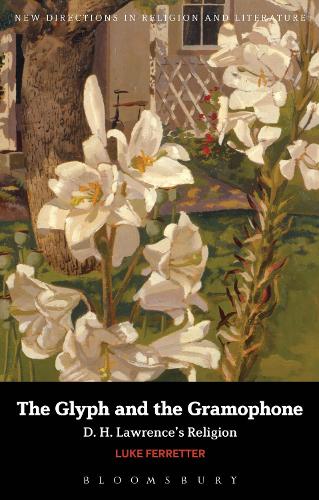
The Glyph and the Gramophone: D.H. Lawrence's Religion
(Paperback)
Available Formats
Publishing Details
The Glyph and the Gramophone: D.H. Lawrence's Religion
By (Author) Dr Luke Ferretter
Bloomsbury Publishing PLC
Bloomsbury Academic USA
12th September 2013
United States
Classifications
General
Non Fiction
829.91209
Physical Properties
Paperback
160
Width 138mm, Height 216mm
249g
Description
D. H. Lawrence wrote in 1914, Primarily I am a passionately religious man, and my novels must be written from the depths of my religious experience. Although he had broken with the Congregationalist faith of his childhood by his early twenties, Lawrence remained throughout his writing life a passionately religious man. There have been studies in the last twenty years of certain aspects of Lawrences religious writing, but we lack a survey of the history of his developing religious thought and of his expressions of that thought in his literary works. This book provides that survey, from 1915 to the end of Lawrences life. Covering the war years, Lawrences American works, his time in Australia and Mexico, and the works of the last years of his life, this book provides readers with a complete analysis, during this period, of Lawrence as a religious man, thinker and artist.
Reviews
In this carefully researched and lucidly written study Luke Ferreter traces the diverse expressions of D. H. Lawrences religious vision... The books combination of original research with illuminating analyses of the fiction, discursive prose and poetry will make it indispensable reading for both students new to the author and scholars looking for a fresh, bold and comprehensive approach to this important but relatively unexplored area of Lawrence studies. * Dr Andrew Harrison, University of Nottingham, UK *
Early in his career D. H. Lawrence declared that he was "primarily a passionate religious man." The Glyph and the Gramophone demonstrates the centrality of Lawrence's non-doctrinal religious beliefs to an understanding of his thought and literary works. In the bargain the book reconfirms Lawrence's status as one of the greatest English writers of the first half of the 20th century. * Keith Cushman, Past President, D. H. Lawrence Society of North America *
A remarkably well-documented study of Lawrences religious thought based on a careful exploration of its sources and a discussion of former interpretations. The way the author traces the evolution of Lawrences spiritual quest throws new light on the writers controversial leadership novels and is particularly helpful for our appreciation of his last works and poems. * Ginette Katz-Roy, Paris-Ouest University, France *
It is a compliment to this book to say that I wanted it to be much longer. It, and the series of which it is part, are signs of the very welcome religious turn in criticism, which allows Lawrence to be recognised for what he undoubtedly is: homo religiosus. The books findings are of interest not only for the sake of a more accurate understanding of Lawrence, but for visions which may inspire certain readers with the critic serving as mediatory priest to Lawrences religion [A] serious and valuable book. -- Catherine Brown * Journal of D. H. Lawrence Studies *
Ferretter (British and American literature, Baylor Univ.) argues that Lawrence replaced organized religion with the idea, taken from Herbert Spencer, of an unknown God. Ferretter explains the problem using terms from Lawrence: what he desires is the glyph (the excess of signification); what he has is the gramophone (the empty signification of modernity). He lingers over Kangaroo and The Plumed Serpent, evenhandedly considering the merits and flaws of these underappreciated, problematic novels. For upper-division undergraduates through faculty. -- D. Stuber, Hendrix College * CHOICE *
Author Bio
Luke Ferretter is Associate Professor of Twentieth-Century British and American Literature at Baylor University, USA. He is author of Sylvia Plaths Fiction: A Critical Study (2010), Louis Althusser (2006), Towards a Christian Literary Theory (2003), and has published widely on 20th-century literature, theory and religion.
